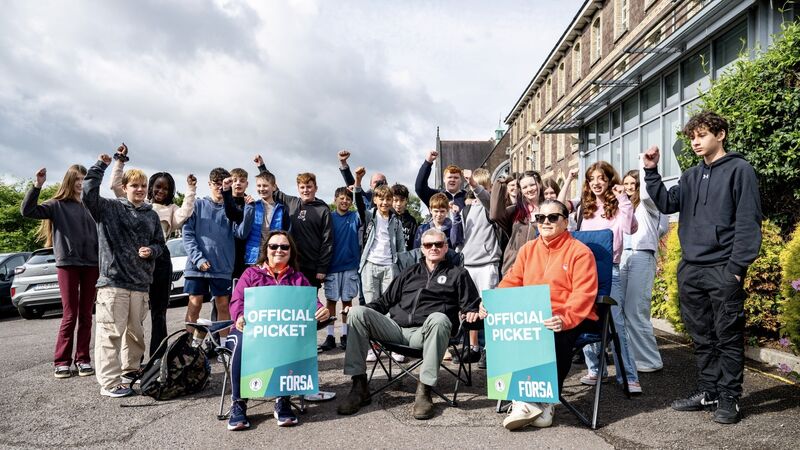Letters to the Editor: School secretaries and caretakers must be treated fairly

Students of Cork Educate Together Secondary School rallied in support of school secretaries Joanne Yelverton and Elaine Barrow and caretaker Andrew (Ash) McKrae earlier this week. Picture: Chani Anderson
The strike by school secretaries and caretakers has shone a harsh light on a shameful injustice in our education system. These staff, who are absolutely essential to the daily running of our schools, are denied even the most basic entitlements: They have no pension provision, and are refused fair sick leave and bereavement leave. To treat dedicated workers in this way is nothing short of disgraceful.
Let us be clear: Schools cannot function safely without them. Secretaries ensure accurate record-keeping, manage emergency contact with parents, and administer medication to children who need it. Caretakers keep buildings safe, carry out essential fire and security checks, and maintain hygiene standards.








